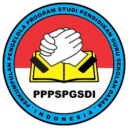PENERAPAN INQUIRY LEARNING BERBASIS LINGKUNGAN UNTUK MENINGKATKAN AKTIVITAS DAN HASIL BELAJAR TEMATIK
DOI:
https://doi.org/10.35568/naturalistic.v3i1.273Keywords:
Inquiry model, thematic learning, student activity, student learning outcomesAbstract
This study aims to increase the activities and thematic learning outcomes through the application of an environment-based Inquiry model. The type of research used is classroom action research in two cycles with the look, think, and act stages. The subjects of the study were grade 4A students of SDN Salatiga 06, totaling 33 students. Data collection techniques used in this study are test and non-test techniques. Nontes technique in the form of observations on student activities, this observation is done by observation, and documentation during the learning process. This research is said to be successful if at least 80% of students get a score of penelitian 75. The results of the study show: (1) The score of pre-cycle activity in grade 4A is 43.77% and the score of completeness of the results of pre-cycle learning of students is 64% with the average score 60.50; (2) The score of student activity in the first cycle was 72.02% and the completeness score of student learning outcomes was 73.50% with an average score of 72.30; (3) Student activity scores in cycle II amounted to 83.50% with an average score of 83.15 and student completeness learning outcomes on a 91% cycle with an average value of 87.25. The data shows that in the first cycle the activity and learning outcomes have not met expectations which means that the indicators of success have not been achieved while in cycle II the activities and learning outcomes are in line with expectations which means that the indicators of success have been achieved.
Downloads
Downloads
Published
Versions
- 2020-07-06 (2)
- 2018-10-30 (1)
How to Cite
Issue
Section
License
Copyright of Journal Naturalistic : Jurnal Kajian Penelitian Pendidikan dan Pembelajaran (e-ISSN:2548-8589, p-ISSN:2528-2921).
Open Access Policy
This journal provides immediate open access to its content on the principle that making research freely available to the public supports a greater global exchange of knowledge.
This journal is open access journal which means that all content is freely available without charge to users or / institution. Users are allowed to read, download, copy, distribute, print, search, or link to full text articles in this journal without asking prior permission from the publisher or author. This is in accordance with Budapest Open Access Initiative.










